commentary Commentary
Commentary: Budget 2021 and how Singapore’s tax system is changing for the better
Amid Singapore’s challenging fiscal position, tweaks to some taxes may be needed but the bigger shift to tap on private monies may be the ultimate game-changer, if relevant safeguards are in place, says NUS’ Associate Professor Simon Poh.
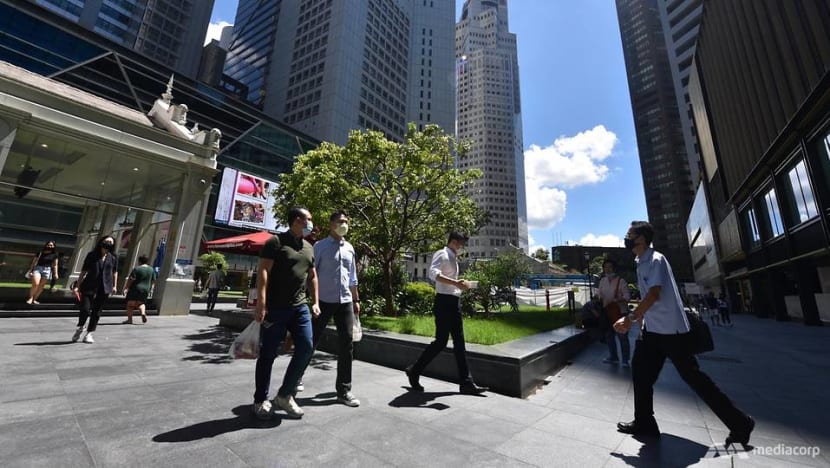
Office workers at Raffles Place in Singapore. (File photo: Jeremy Long)
SINGPORE: Managing the finances of a whole nation is no mean feat.
In Singapore’s case, this task is especially daunting now, given the tremendous challenges brought about by the devastating effects of the pandemic.
In this year’s Budget, Deputy Prime Minister and Finance Minister Heng Swee Keat had to propose a drawdown on the country’s past reserves for a second consecutive financial year.
READ: Commentary: Companies and workers, forget life before COVID-19. Budget 2021 will help us prepare for life after it
Notably, the quantum involved is much lower - S$11 billion, compared to S$42.7 billion in the previous year.
Still, the total drawdown of $53.7 billion for these two years is huge and equivalent to a few decades’ worth of Budget surpluses.
This must have been a very difficult decision to make but is understandable given the unprecedented circumstances.
READ: What you need to know about Budget 2021
HIKE IN TAXES EXPECTED BUT SOME SURPRISES
The pandemic is far from over. The light at the end of the tunnel is quite distant, particularly for certain countries severely impacted.
But Mr Heng has adopted the right strategy to gradually swift the focus from tackling the immediate needs of containing the pandemic to addressing our long-term fiscal needs.
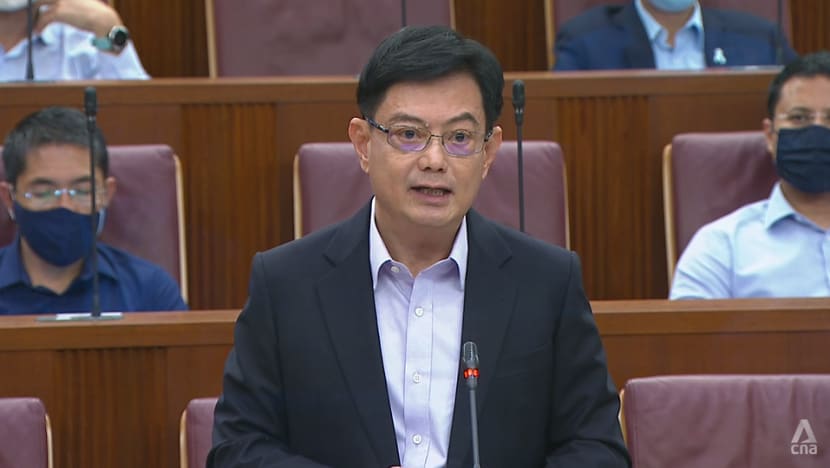
There must have been relief among taxpayers to learn that apart from petrol taxes, there are no tax rate increases on corporate, individual income taxes or curbs on property purchases.
Few expected the corporate tax rate to increase anyway, given the worldwide trend of reducing corporate tax rates in recent years.
READ: Commentary: Singapore's game plan to court more billionaires to come here is paying off
UNCERTAINTY OVER CORPORATE INCOME TAX STRUCTURES GOING FORWARD
However, the cessation of corporate income tax rebates this year after seven successful years arising mostly from the Transition Support Package launched in 2013 to aid businesses in restructuring means that companies will generally pay higher taxes for the same amount of taxable income earned in 2020 compared to previous years.
This bodes well for corporate income tax collection for FY2021, projected to increase to S$18 billion after having dipping from S$16.7 billion in FY2019 to S$13.7 billion in FY2020 due to lower profits and losses sustained as a result of the pandemic.
Putting aside Net Investment Returns Contribution, corporate income tax collection has consistently generated the most revenue for the Government for many years.
READ: Commentary: What taxation for the digital age ought to consider
However, this reliable revenue base may be eroded should international tax rules determining how taxing rights are allocated among jurisdictions change as a result of ongoing discussions under the Base Erosion and Profit Shifting (BEPS).
Global companies may no longer find it attractive to locate their operations in Singapore consequently.
There is a lot of uncertainty now in determining how badly Singapore will be impacted if these happen.
SCOPE FOR FURTHER CHANGES TO THE TAX STRUCTURE
Given this, the Government may have to consider further tweaks to the tax system in order to maintain a strong, stable revenue base, irrespective of whether and how the new rules under BEPS pan out.
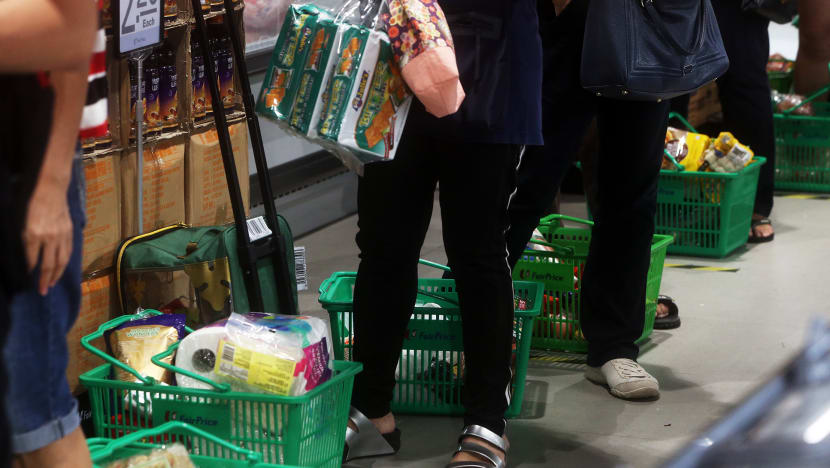
Promisingly, the annual collection for personal income taxes has been pretty steady, hovering around S$12 billion to $13 billion for the last three years. Singaporeans have not only seen incomes go up but are also paying their fair share for national development.
Still, there may be scope for the structure to be more progressive in the near future by introducing a higher tax rate above 22 per cent for ultra-high income earners.
Some might ask, wouldn’t the forthcoming goods and services (GST) hike take care of that? The answer is yes but only to a certain extent.
Indeed, the next highest revenue generator after both types of income taxes is GST.
READ: Commentary: GST hike unavoidable, will probably take place in 2023
Similar to corporate income tax, GST revenue dipped from S$11.2 billion in FY2019 to S$9.9 billion in FY2020 likely due to the pandemic’s dampening effect on consumption.
GST collection has been projected to be somewhat restored to S$11.3 billion in FY2021 as the economy recovers and spending increases.
Indeed, collected GST revenue may improve with the introduction of GST on low-value goods imported via air and post as well as on consumer imported non-digital services (including educational learning and fitness training) from 2023.
Should the economy recover this year at the higher end of the 4 to 6 per cent projected growth, DPM Heng may well decide to effect the GST hike sooner rather than later sometime from 2022 to 2025.
READ: Budget 2021: GST hike to happen between 2022 and 2025
PETROL TAXES WON’T CREATE A DENT
Although petrol taxes have been increased with immediate effect, the chief motivation behind the policy reason is likely to discourage drivers from using internal combustion engine vehicles.
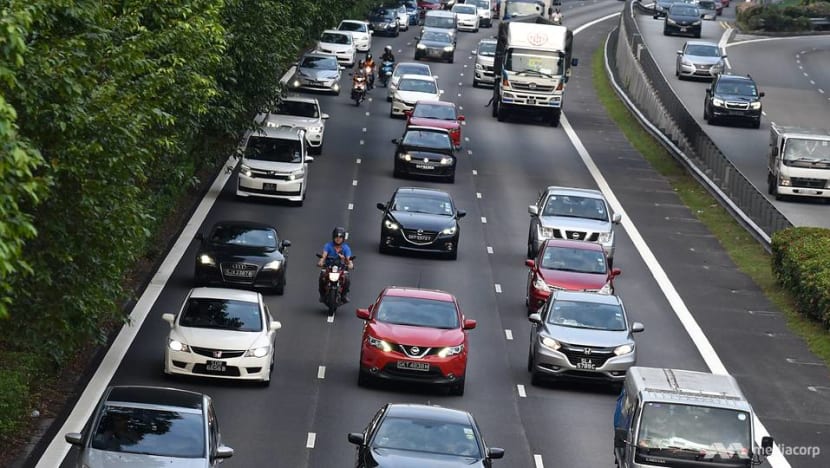
Total motor vehicle taxes, at S$2.21 billion in FY2020, are insignificant compared to income taxes and GST.
Moreover, additional taxes collected as a result this year will likely to be offset by the announced temporary rebates for motorcyclist, taxi drivers and private hire drivers.
READ: Budget 2021: Petrol duty rates raised by up to 15 cents per litre
PAVING THE WAY FOR BORROWING
What then can the Government do apart from changes to the tax structures to raise revenue? Budget 2021 has some answers.
Interestingly, this year’s Budget paved the way for the Government to use long-term bonds to fund infrastructure projects, under a Significant Infrastructure Government Loan Act to be debated in Parliament.
This is a fair way to do so as the direct beneficiaries of improved infrastructure bear the responsibility of funding these projects.
READ: Commentary: Forces of climate action are reshaping finance in Singapore and around the world
This approach also smoothens out the lumpy expenditure for MRT lines and the building of coastal defences over many years, assuming there is a robust process to select less risky infrastructure projects suitable to be financed with bonds of an appropriate tenure.
Such an approach is prudent considering the global economy may be in a low-interest-rate environment for some years to come though the question remains what safeguards may be in place to manage the risk of interest rates going up.
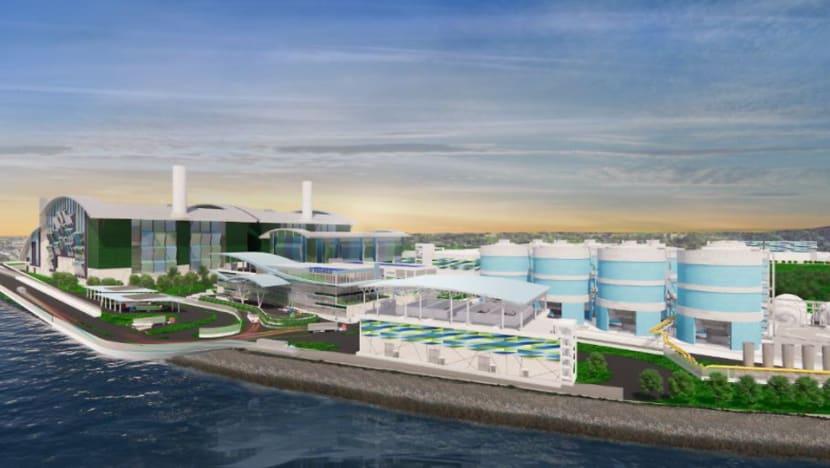
Still, it's clear borrowing could help lift the pressure off Singapore’s otherwise tight fiscal position.
This position to leverage institutional investment monies to fund public projects is also evident in the employment of green bonds to support projects in line with the Singapore Green Plan 2030 which also fulfills the larger goal of entrenching Singapore’s financial hub status in developing green capital markets.
All these measures should place Singapore on a stronger fiscal position going forward.
As Singapore recovers from the pandemic and barring any new external shocks, the Government should return to running balanced budgets soon, and begin to accumulated surpluses.
When that happens, the next question on whether to return the past reserves that had been drawn will take centre stage.
That will be a pleasant problem for the Finance Minister to solve.
Listen to Eco-Business founder Jessica Cheam break down Singapore's Green Plan 2030 on CNA's The Climate Conversations:
Simon Poh is Associate Professor (Practice) of the Department of Accounting at NUS Business School. The opinions expressed are those of the writer and do not represent the views and opinions of NUS.















